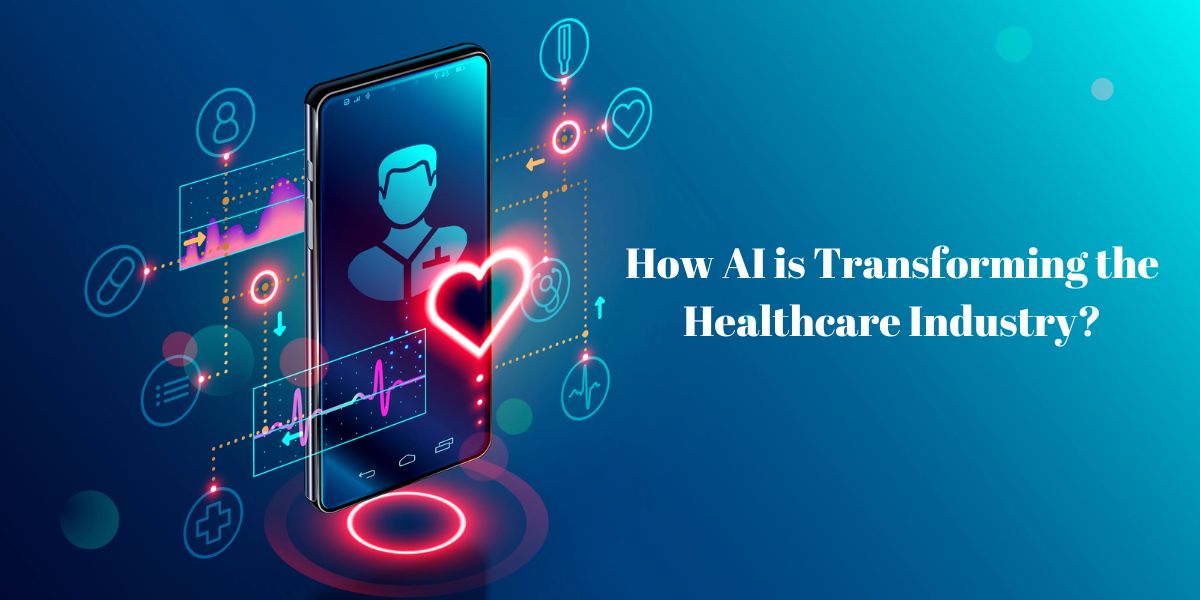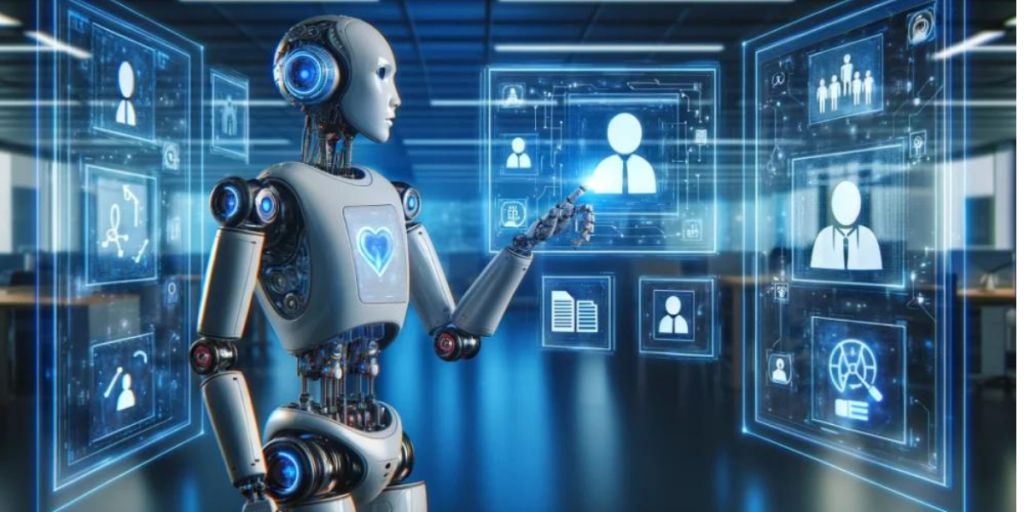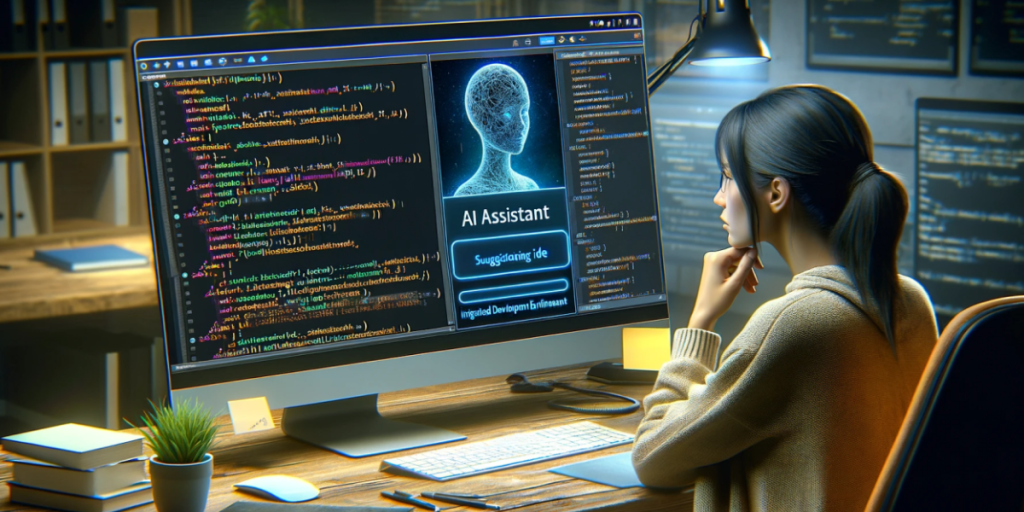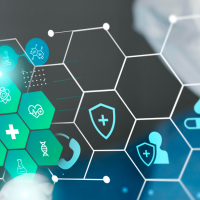AI has transformed healthcare, improving efficiency and effectiveness more than before. This is a revolutionary result. The result of AI is being felt in healthcare. From diagnosing the ill with unprecedented accuracy to streamlining administrative procedures, Artificial Intelligence is enhancing patient-enhanced health care and educating patients about opportunities for doctors and patients.
However, AI is becoming more sophisticated in its ability to do what humans do more effectively, faster, and cheaply. The possibilities for AI and robotics in healthcare are vast. Like in our daily routine, AI and robotics are increasingly a component of the healthcare ecosystem.
Artificial intelligence is causing massive advancement and innovations within the life and health sciences industries. AI accelerates developments in drug research and development. This helps to achieve incredible speed and accuracy in diagnosis. It also allows for more efficient operations.
It’s a significant fact considering how many people can profit from it. Healthcare is one of the sectors AI is expected to impact the most. In this blog, we’ll examine how Artificial Intelligence Development Company transforms the healthcare industry with the help of powerful AI solutions.
What Is Artificial Intelligence?
In simple terms, AI refers to the art and technology of creating intelligent machines through algorithms or rules that the machine follows to replicate the human brain’s cognitive processes. AI systems can anticipate or handle issues as they occur, so they operate in a planned, intelligent, and flexible way.
AI’s strength is its ability to recognize and identify patterns and relationships from multimodal and multidimensional data sets. For instance, AI systems could translate a patient’s entire medical history to a single number, a possible diagnosis. Additionally, AI systems are dynamic and self-sufficient, continually learning and evolving as more information becomes accessible. AI has yet to progress towards creating a massive multidimensional market in the health industry.
Top Ways In Which AI Is Transforming Healthcare Industry
From providing a precise diagnosis to improving the efficiency of hospitals, AI applications in healthcare are beneficial. Many examples show how AI has revolutionized healthcare and pushed its digital revolution.
Offering Robot-Assisted Surgery
It’s among the most popular uses of AI in healthcare. Artificial intelligence and collaborative robots have transformed surgical techniques, reducing the dangers of pain, blood loss, and other adverse consequences. Additionally, thanks to AI in healthcare, surgeons can perform complicated operations with greater precision, resulting in quicker and more comfortable patient recuperation.
By utilizing AI Enterprise Solution in medicine and healthcare, surgeons can access the latest information in real time and gain insight into the patient’s medical condition. The AI-based information allows health professionals to make quick and informed decisions before, during, and even after operations to provide the most effective results.
Improving Diagnostics
AI technology can aid healthcare professionals in diagnosing patients’ conditions by analyzing symptoms, suggesting targeted treatments, and even predicting risks. It is also able to detect abnormal outcomes. Numerous healthcare providers and health organizations are using intelligent diagnostic tools. Machine learning technology can ask patients to answer questions regarding their symptoms. It depends on the answers; it informs them of options for seeking treatment.
Furthermore, AI technology can take healthcare tailored explicitly for the person to the next step by making sense of information and drawing conclusions that allow for informed and customized treatment. Deep learning models can examine large volumes of data, from genetic profiles and molecular/cellular analyses to lifestyle factors and other lifestyle elements to relevant studies that help physicians select effective therapies for their patients.
Supporting Clinical Decisions
AI, as well as ML in the field of healthcare, are transforming how medical professionals make decisions. AI provides data that aids healthcare professionals in diagnosing treatments and management. It also assists in using data in specialized areas like radiology, ophthalmology, and pathology. The technology could allow doctors to complete specific tasks autonomously with AI’s help shortly. Through natural language processing, AI could also assist in translating the clinical notes that are in EHRs and allow doctors to input data only.
Patient Data And Risk Analytics
All things begin with the people. In healthcare, the patient and the provider have a role to play in every healthcare institution that exchanges information about their health to find the most effective health care. Not only can they sometimes not explain their complete medical situation, but only sometimes is a medical specialist aware of the importance of every detail in planning the ideal care or diagnosis for a patient. AI aids in this process by promoting practices or establishing strategies that aim to increase the importance of service.
AI can be utilized for healthcare workflows like scheduling appointments, outpatient management, approvals, consultations, bills, admissions, and more. This will give a greater personalization to a patient’s family members since they will not have to wait in lengthy queues for appointments, availability, or availability. They can walk into the clinic when scheduled for testing and then go home. A bot powered by AI that can be used to communicate will help patients recognize the first signs of a cold or flu and refer them to an expert for more help.
As all information is gathered, stored, and processed by connected intersystems and encryption, the patient does not need to keep medical documents or prescriptions. Healthcare professionals can electronically examine a patient’s history using a tablet or computer before scheduled appointments. The patient can also review the information with other specialists to choose the best treatment.
Medical Research
Artificial Intelligence (AI) is revolutionizing medicine through its assistance in medical research. AI algorithms can study massive databases of medical records and genetic data to discover connections between genetic and environmental variables. This may lead to the development of new therapies or diagnostic tools for various illnesses.
AI Solutions Development Services is used in medical research to identify drug candidates and conduct clinical studies. Researchers working on AI-related projects might use models to generate and test theories in simulations. This will result in more precise predictions prior to testing on human beings, thus reducing expenses and increasing the speed of pharmaceutical development.
However, the application of AI for medical research has ethical and legal issues, including the security of patient data utilized in analysis, which must be protected. There are also concerns about bias because the data sets studied by machines need to represent a greater diversity of populations. Suppose the issue needs to be addressed and unchecked. In that case, it may result in discriminatory policies and services created from these datasets, which could adversely affect subgroups of the population excluded from modeling.
Boosting Patient Engagement and Adherence
Personalized medical devices and wearables, such as smartwatches or activity trackers, can improve patients’ health and help healthcare professionals monitor their condition. They can also contribute to studies on the health of populations by collecting and analyzing individual data. They can help patients stick to recommendations for treatment. Patients’ compliance with treatment programs is crucial in determining the outcome.
If patients do not comply and do not alter their behavior or use prescribed medication as instructed, the treatment plan may be ineffective. AI’s ability to use AI to tailor treatment plans could assist patients to remain more active and involved in their medical care. AI tools could notify patients of notifications or content designed to prompt actions. AI is a tool that can build a self-service model for patients, a web-based portal that is easier to access and provides more options via mobile devices.
Accessibility And Affordability
AI could transform the healthcare industry by improving outcomes and making it affordable and accessible. The market worldwide for AI in healthcare is expected to increase to $64.10 billion by 2029. Most investors believe in AI’s potential for influence. Venture capital funding for the top 50 businesses that deal with healthcare AI has reached $8.5 billion.
AI helps transform time-consuming and inefficient work into actionable information that can lead to better results. The technology could lead to faster diagnosis and treatment, better treatment coordination, and improved patient engagement. The newest AI technology, like chatbots or predictive risk scores, can provide patients with quick response speed, decreasing wait time or the need for unnecessary doctor visits.
With the help of AI, clinics and hospitals will save money by automating routines like medical billing and medication management and providing an excellent customer experience to those who otherwise would have lengthy waiting times in doctor’s clinics or pharmacies. Furthermore, this decreases the amount of healthcare expenses wasted, which currently ranges between $1,100 and $1.700 per patient annually.
Medical Imaging And Analysis
One exciting way to use AI Driven Solutions for healthcare is to analyze and image medical patients. With the help of computerized algorithmic processes, AI can dissect complex images and analyze the data for various diagnosis purposes. AI has numerous advantages for patients and health professionals, such as speedier diagnosis, more precise results, and better patient outcomes.
Software solutions dominate the AI healthcare industry, using AI for medical imaging. AI-powered computers can quickly process vast amounts of data and detect tiny patterns or subtle changes that our eyes might overlook. In particular, AI can identify the thickening of specific muscle structures or track blood flow fluctuations, which may indicate certain illnesses. It has also been proven helpful in detecting cancerous lesions and monitoring thoracic disorders and neurological conditions.
Thanks to AI-powered medical imaging advances, improvements are continuously being created, such as machine learning algorithms for detecting eye diseases caused by diabetes at a comparable level of quality to that of human eyes. Technology is advancing quickly across various fields; every breakthrough is more achievable than ever before when it comes to improving patients’ health by using advanced technologies, such as harnessing powerful technology like artificial intelligence.
Analysis Of a Healthcare System
Healthcare invoices are increasingly converted into digital format, and retrieving information about a doctor’s treatments and the medical facility is now a breeze. Following data mining, medical facilities can produce reports about the errors they constantly make. Particularly when treating a specific disease to reduce or avoid unnecessary hospitalization of patients whenever necessary.
Supporting Administrative And Operational Workflow
AI will improve the efficiency and workflow of administrative tasks within the healthcare industry by automating specific procedures. Making notes and reviewing medical information in electronic health records takes 34%—55% of doctors’ time, one of the most significant causes of efficiency loss. Tools for clinical documentation that utilize natural language processing could decrease the time providers spend documenting their doctors and allow them to focus more on providing top-quality medical care.
The health insurance industry can profit from AI technology. Assessing claims takes a long time because insurance companies deem most health claims fraudulent or incorrect. Natural language processing software assists insurers in identifying issues faster than weeks or even months.
Care For Patients Is Prioritized
Before the pandemic, medical needs were more significant than the resources available in many healthcare systems. Providing the best care to severely ill patients is essential to ensuring affordable, equitable healthcare. AI-driven software platforms will assist health personnel in decision-making, ensuring all patients stay within the gaps.
Many times, patients who have lung cancer get dispersed in the healthcare system due to insufficient coordination of care and inadequate follow-up opportunities. This means that the majority of patients get diagnosed too tardily.
Lifestyle Management & Monitoring
Through AI-powered lifestyle management applications and robots, patients can be monitored continuously, even without doctors and nurses. Various applications do this in real time, including AICure, which utilizes the phone’s front camera to monitor patients’ behavior continuously. AI has already enhanced features for medical and facial recognition, and when combined with monitoring and lifestyle applications and monitoring applications, they have improved the effectiveness of consuming medicine. This means that people are following the prescribed dosage.
Emergency Room & Surgery
AI is gaining significant acceptance for surgical robotics, which is up and coming. Robot-assisted surgical procedures support surgeons, allowing them to operate with more ability and control, making avoiding mistakes easier. They are educated using actual surgical experience that is based on medical records. This allows them to enhance the methods that result in better surgical results.
The need for emergency assistance has been an ongoing issue that causes delays in treatment. AI aid can assist in predicting ER visits and ensure that patients receive the proper medical attention. There are many other uses and applications for AI-enabled robotics for health care. Besides robotic surgery, they can also help streamline the distribution of changes and disinfection and allow healthcare providers to focus more on patients.
Help Save Lives By Taking Action Early
AI algorithms used for analyzing patient information are not a substitute for diagnosis or treatment by an expert in healthcare. However, they’re a great asset for analyzing the data with increasing precision. AI is also able to transform medicine by making use of predictive analytics. When data from patients includes medical records on the internet and genomic data, as well as lifestyle factors and treatment outcomes, AI algorithms can provide specific treatment programs.
It allows healthcare professionals to make educated decisions regarding which interventions are most effective and which doses of medications are appropriate for particular patients. The result is improved treatments and decreased adverse events.
The Impact Of Artificial Intelligence On Healthcare
Artificial Intelligence (AI) addresses many pressing issues in the healthcare field. AI could help cut expenses, increase effectiveness and results, encourage research in medicine, and improve patient care. AI systems can identify those who may be in danger earlier and then flag the patients for additional testing or treatment. This helps avoid costly mistakes that could be missed.
To increase efficiency in hospitals where nurses devote over half of their time to administrative work like scheduling appointments, managing medication, and coordinating with doctors regarding previous cases, a computerized system can take on the tasks, freeing valuable time to focus on other activities that benefit patients, including visiting patients personally or offering emotional assistance under challenging situations.
AI algorithms can analyze vast amounts of information collected from various sources and identify patterns that could result in more effective treatment options in individual instances based on particular indications (e.g., the identification of patients who may benefit from surgery rather than medications). Also, they offer real-time analytics tools so that healthcare professionals can make quick and correct decisions when needed, especially when lives are on the line.
Future Opportunities and Challenges of Artificial Intelligence In Healthcare
Artificial intelligence is fast altering the field of medicine and can improve patients’ healthcare while reducing expenses. AI’s potential applications in healthcare include diagnosing disease patterns, anticipating individuals’ risks for specific conditions, and offering preventative strategies to decrease patient waiting time and boost healthcare system efficiencies. Many applications could be developed using this technology; however, different issues will need to be tackled first. However, a variety of issues also need to be tackled.
Privacy issues are one of the most significant challenges related to AI in healthcare. Since AI has access to personal health data, the proper management of personal data and security procedures must be in place. Furthermore, transparency is crucial when determining how much control patients have over their personal information.
Another issue is data inconsistencies and flaws in research due to biases built into machine-learning models, as well as maintaining the AI system’s performance following the implementation.
While there are numerous factors to be considered when implementing AI in healthcare institutions or hospital settings like those discussed previously, the benefits of AI make incorporating it into energy- and efficient processes vital. In the future, AI technology could increase our ability to identify illnesses earlier, thereby increasing diagnosis precision. It will also ease the medical professionals’ work by streamlining procedures so that they can concentrate on enhancing their areas of expertise instead of handling administrative tasks.
Conclusion
As you can see, AI and healthcare are inextricably linked due to the many advantages this technology can bring to the industry. Artificial intelligence is changing healthcare delivery by making it more effective, efficient, and holistic. Integrating AI within healthcare will improve diagnosis accuracy, speed up administrative processes, improve resource utilization, and increase the quality of care.
AI could revolutionize healthcare by providing individualized care, increasing efficiency, and decreasing costs. However, questions about AI’s ethical consequences, including privacy concerns and data bias, need to be addressed so that AI can be used effectively and safely in the health industry.

























